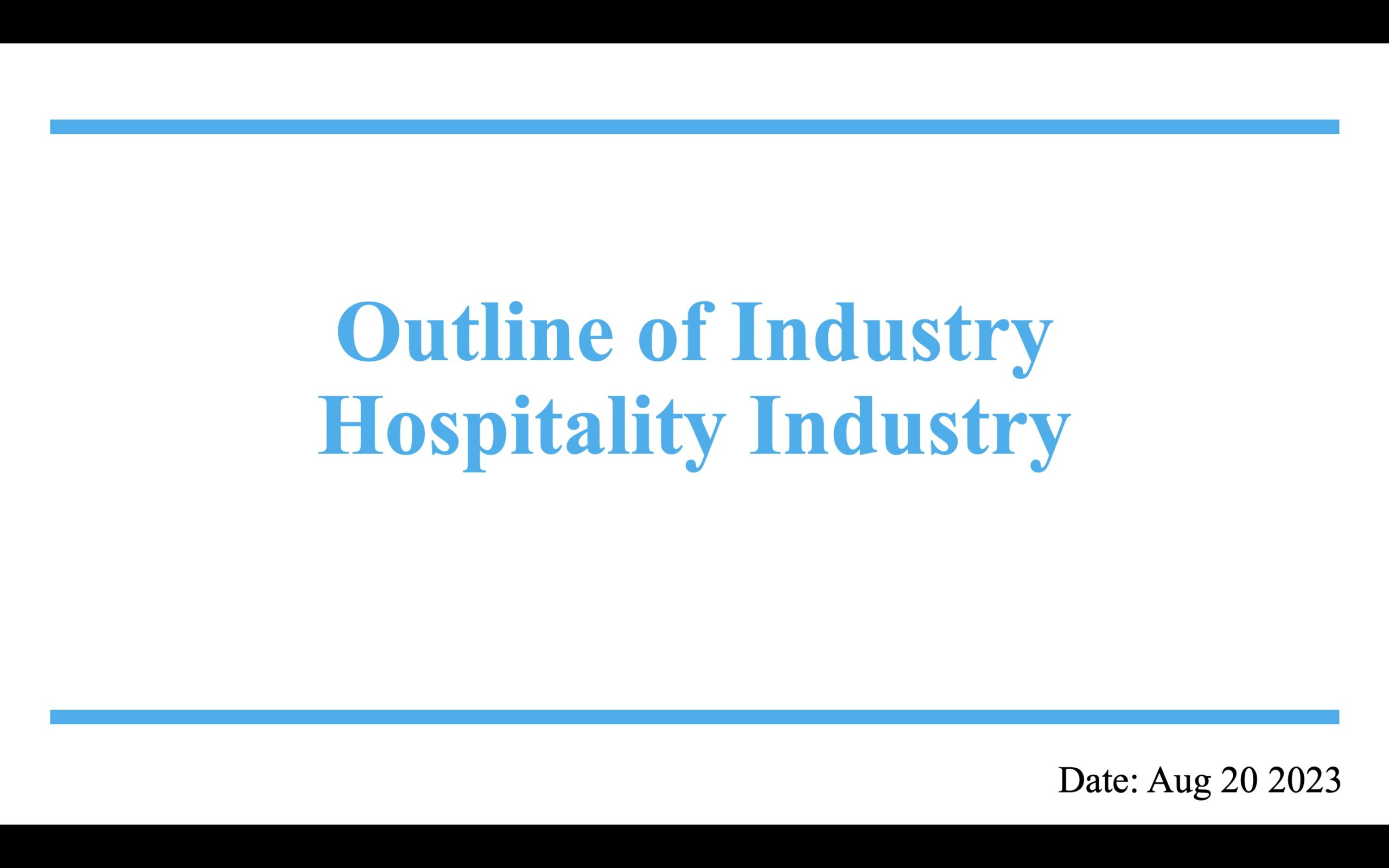The hospitality industry is a crucial sector that plays a significant role in the global economy, providing employment opportunities, promoting cultural exchange, and contributing to the development of communities and nations. The industry encompasses a range of services, from hotels and restaurants to event planning and travel and tourism, and is driven by consumer demand, technological advancements, and economic trends. In this essay, we will explore the history of the hospitality industry, its current state, and its future prospects.
The history of the hospitality industry dates back thousands of years, with early civilizations providing accommodations for travelers and guests. Over the centuries, the industry has grown and evolved, driven by advances in transportation, technology, and consumer preferences. The 20th century was a particularly significant period in the history of the hospitality industry, with the development of new forms of travel and tourism, such as air travel and cruises, and the growth of the hotel and restaurant sectors.
Today, the hospitality industry is a diverse and dynamic sector, encompassing a wide range of players, including hotels, restaurants, travel agencies, and event planning companies. The industry is characterized by a number of trends and challenges, including the growing demand for unique and authentic experiences, the increasing importance of sustainability and corporate social responsibility, and the impact of new technologies, such as digital marketing and online booking platforms. At the same time, the industry is also facing increased competition, driven by changing consumer preferences and the rise of new entrants, such as Airbnb and online travel agencies.
The current state of the hospitality industry is shaped by a number of factors, including the impact of the COVID-19 pandemic, the growing importance of sustainability, and the increasing role of digital technologies. The pandemic has had a profound impact on the industry, with travel and tourism virtually grinding to a halt, and the hotel and restaurant sectors facing significant losses. At the same time, there has been a growing emphasis on sustainability and corporate social responsibility, as consumers become more conscious of the impact of their travel and dining habits on the environment and local communities. In addition, digital technologies have continued to play an increasingly important role in the industry, driving marketing and booking activities, and enabling new forms of engagement with customers.
The future of the hospitality industry is uncertain, with a range of potential outcomes depending on a number of factors, including economic trends, consumer preferences, and technological advancements. On the one hand, there is likely to be continued growth in the demand for unique and authentic travel and dining experiences, driven by changing consumer preferences and the rise of new forms of travel and tourism. On the other hand, there may be increased pressure to reduce costs and improve efficiency, driven by economic and environmental factors. In addition, the industry is likely to face increased competition from new entrants, such as online travel agencies and alternative accommodation providers, and the rise of new technologies, such as virtual reality and artificial intelligence.
In conclusion, the hospitality industry is a vital sector that plays a significant role in the global economy, providing employment opportunities, promoting cultural exchange, and contributing to the development of communities and nations. The industry has undergone significant changes over the centuries, adapting to new technologies and changing consumer preferences. The current state of the industry is shaped by a number of trends and factors, including the impact of the COVID-19 pandemic, the growing importance of sustainability, and the increasing role of digital technologies. The future of the hospitality industry is uncertain, with a range of potential outcomes depending on economic trends, consumer preferences, and technological advancements. However, the fundamental importance of the hospitality industry in promoting travel and cultural exchange, and supporting local communities and economies, remains unchanged, and will continue to be essential in the years to come.



Comment